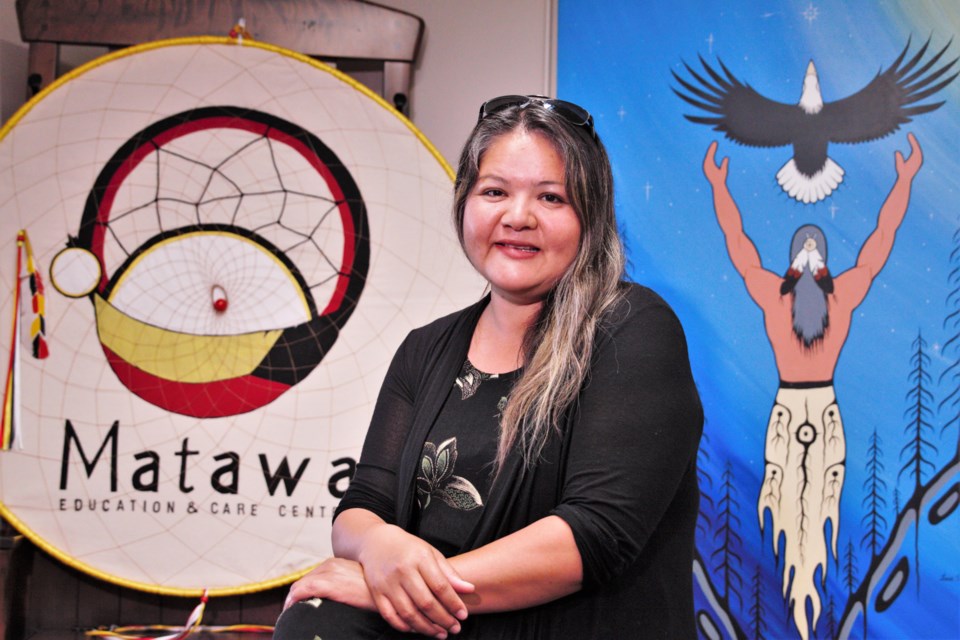THUNDER BAY – Northern Ontario First Nations are concerned the federal government hasn't committed to renew a program that helps address education inequities and youth suicides.
The Choose Life initiative has seen over $135 million spent since 2019 on mental health supports, special education workers, and connections with elders and traditional culture for students from the 49 First Nations that make up Nishnawbe Aski Nation (NAN).
The program was created in 2017 after NAN sought an order from the Canadian Human Rights Tribunal directing the federal government to provide timely funding for youth mental health, in the wake of a suicide crisis in NAN communities.
The request for an order was dropped after NAN and Canada reached the Choose Life agreement, which the tribunal endorsed as an encouraging development.
Choose Life has also supported progress on recommendations from the 2016 Seven Youth Inquest, which sought to prevent future deaths of First Nations youth.
Now, NAN is raising concerns that the federal government has not committed to renew the program beyond March of 2022.
The Matawa Education and Care Centre, a Thunder Bay alternative secondary school that serves youth from nine NAN communities, warns progress on Seven Youth Inquest recommendations could backslide if the funding is ended.
“We do have several life-saving programs and services we’re at risk of losing because of the lack of commitment from the federal government," said Sharon Nate, executive director of education for Matawa First Nations Management. "This will certainly impact the success of the students.”
Matawa has reached out to Indigenous Services Canada without receiving a response, Nate said. She’s worried about what that could mean for students next year.
A representative for ISC said the federal government "supports" Choose Life, but couldn't confirm any plans to continue the program beyond 2022.
“The Department actively supports the implementation of Jordan’s Principle and community-based youth suicide prevention programs, like the Choose Life Initiative,” said spokesperson Leslie Michelson.
"The Department is working with the Nishnawbe Aski Nation to explore options that will ensure sustained support for the mental health needs of children and youth."
Choose Life funding has helped support a safe sobering site, on-call services, special education workers, elders and outdoor mental health programs, and a partnership with St. Joseph’s Care Group offering access to counselling, family therapists for Matawa students, and similar programs for students from other NAN First Nations.
The services provide support that would normally be offered by family for students who have to leave home because there is no high school in their community, Nate said.
“When you leave your home in a northern community, you come to the city and you’re living in a home that’s not your family. You [don’t] have those services your family would be able to provide… These services, having the culture and the spirituality worked into the programming – they can relate to that.”
The program has produced clear results, she said, with Matawa granting more credits per semester in recent years, and students adapting better in Thunder Bay.
“We have saved lives," she said. "There have been many instances where students could have been left out in the cold, and other scenarios. We’re fortunate to have that ability to assist the students at that level.”
NAN pointed to similar results in a June 10 letter urging the government to make Choose Life a permanently funded program.
“Of notable mention is the lower incidences of students experiencing suicidal ideation or engaging in high-risk behaviour while they are out for high school, but more work is required to continue to build student programs and well-being models to support students.”
Minister of Health and Thunder Bay-Superior North MP Patty Hajdu said last week she supported continuing the funding, calling it an example of her government’s efforts to address health inequities for Indigenous people.
“I understand that they’re concerned about the end of funding [in] 2022 and looking for commitment beyond [that] so they can continue that program,” she said. “I think that’s very reasonable, and I’ll do everything I can to make sure they’re able to achieve that goal.”
If the program does end, Nate said MECC would likely lose staff and could not continue providing the same supports for its 160 students.
“Currently, we wouldn’t know where to look in terms of alternative funding sources,” she said.



